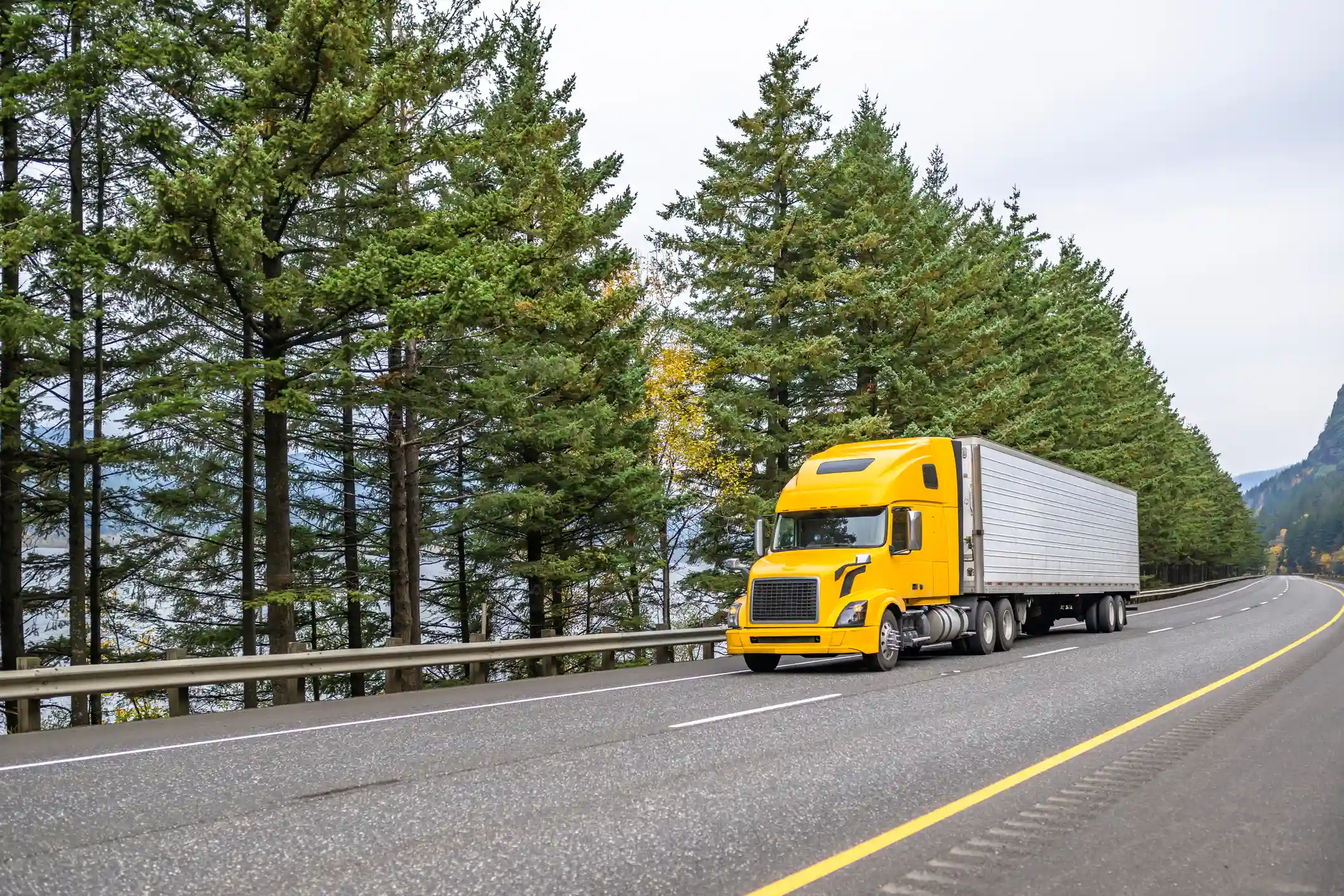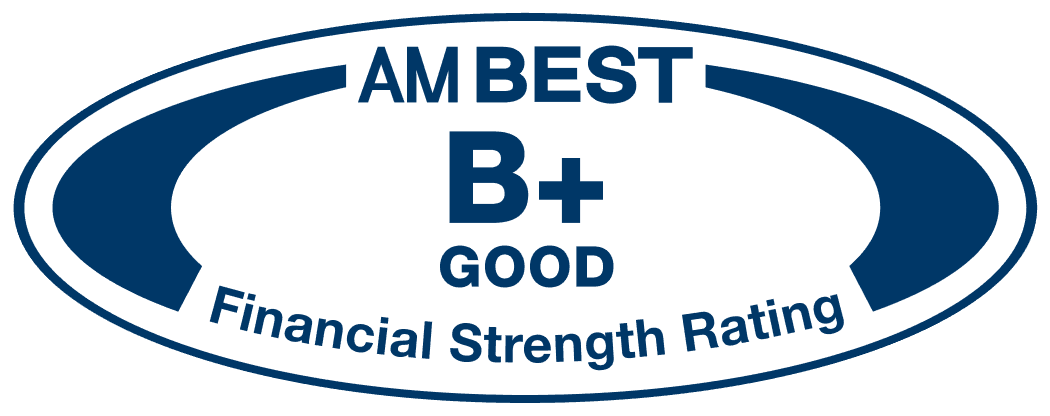Apr 28, 2025
Commercial Auto Liability for Reefer Trucks: What Carriers Must Know
Reefer trucks create added operational risks. See how mechanical failures, fires, and spills from the truck can cause third-party injuries or property damage—and why liability coverage matters.


Refrigerated freight plays a critical role in supply chains across the United States, transporting everything from fresh produce to pharmaceuticals. But while most trucking companies focus on temperature control and cargo protection, many overlook an equally important risk: commercial auto liability exposures.
Reefer trucks face unique liability challenges that go beyond standard accident risks. In certain cases, a malfunctioning refrigeration unit or spoiled cargo can lead to third-party bodily injury, property damage, or environmental claims.
Understanding these exposures—and ensuring they are properly covered under a commercial auto liability policy—is essential for any carrier hauling temperature-sensitive goods.
Key Commercial Auto Insurance Considerations for Reefer Operations
To properly safeguard against the full range of exposures associated with reefer trucking, carriers need a comprehensive commercial auto liability program, including these critical components:
1. Auto Liability Insurance
Commercial auto liability insurance forms the foundation of protection. It covers bodily injury and property damage caused to others if the insured is found liable. It includes legal defense costs, pain and suffering payments, medical expenses for third parties, and repair bills—keeping carriers in compliance with federal and state laws.
2. Personal Injury Protection (PIP)
Personal Injury Protection (PIP) covers immediate medical and related expenses for the driver and passengers, regardless of who caused the unfortunate accident. In reefer trucking, where drivers may face unique exposure risks such as toxic contamination or fire injuries from reefer malfunctions, PIP ensures that the carrier’s personnel can quickly access medical care without delay or litigation.
3. Uninsured Motorist (UM) Coverage
Accidents involving uninsured drivers—or hit-and-run incidents—pose a significant risk on busy transportation routes. Uninsured Motorist (UM) coverage protects the carrier’s drivers and passengers by covering bodily injury and property damage when the at-fault party lacks insurance. Given the complexity and value of reefer operations, being struck by an uninsured motorist can cause major financial disruption without this protection.
4. Underinsured Motorist (UIM) Coverage
Not all drivers carry enough insurance to cover the serious injuries or damages that can occur in commercial trucking accidents. Underinsured Motorist (UIM) coverage steps in when an at-fault party’s insurance limits are insufficient to cover the damages sustained. For reefer carriers transporting high-value cargo and operating larger vehicles, medical costs, downtime, and damage repairs often exceed minimum coverage levels—making UIM essential for maintaining business stability.
Standard Commercial Auto Liability and Reefer-Related Incidents
Most commercial auto liability policies are built to cover accidents involving the insured vehicle. They typically respond to bodily injury and property damage that occur as a direct result of using the truck for business purposes.
Not all policies automatically address every reefer-related risk. Some critical points trucking companies should review:
Mechanical Breakdown Exclusions: Certain policies may limit or exclude liability coverage for damages caused solely by mechanical failures unrelated to a collision.
Pollution Exclusions: Many commercial auto liability policies contain pollution exclusions that could restrict coverage for refrigerant leaks, cargo waste contamination, or hazardous material spills.
Without specific endorsements or carefully negotiated policy language, carriers may find themselves underinsured when reefer-related incidents occur.
The Importance of Reefer-Specific Endorsements
To close potential coverage gaps, many carriers transporting refrigerated freight work with experienced brokers to add specialized endorsements or modify their commercial auto liability policies. These endorsements can:
Remove or modify mechanical breakdown exclusions.
Add coverage for sudden and accidental pollution events related to reefer operations.
Extend liability protections for environmental cleanup costs following refrigerated cargo spills.
By customizing policies to account for reefer-related liability risks, carriers ensure that incidents involving refrigeration units are treated like any other covered commercial auto accident.
Preventing Reefer-Related Liability Claims
While insurance is critical, risk prevention plays an equally important role in protecting carriers from reefer-related liability exposures. Best practices include:
Routine Maintenance: Regular inspection and servicing of refrigeration units help prevent mechanical failures that could lead to fires or leaks.
Temperature Monitoring: Installing real-time monitoring systems allows early detection of reefer malfunctions, enabling drivers to act before situations escalate.
Driver Training: Teaching drivers how to handle reefer emergencies—including isolating a malfunctioning unit or containing cargo leaks—reduces the severity of incidents.
Contingency Planning: Having clear protocols for dealing with cargo spoilage, roadway spills, and environmental hazards ensures faster, safer responses.
Preventive measures not only reduce liability exposure but may also help carriers negotiate better insurance rates by demonstrating strong risk management practices.
Handling “How Much Is Reefer Insurance?”
Underwriters assess several factors when determining premiums for carriers hauling refrigerated goods:
Equipment Condition: Newer, well-maintained reefer units reduce the likelihood of mechanical failures.
Loss History: A clean claims record strengthens a carrier’s profile and can lead to lower premiums.
Operational Territory: Long-haul routes and extreme weather conditions increase operational risk.
Carriers that invest in preventive maintenance and strong operational controls often secure better terms for both primary commercial auto liability and any specialized reefer-related endorsements.
Reefer Trucks and FMCSA Compliance
While the Federal Motor Carrier Safety Administration (FMCSA) requires minimum levels of commercial auto liability insurance for all carriers, it does not specifically mandate coverage for reefer-related incidents.
However, contractual obligations with shippers, brokers, and clients may effectively require carriers to prove they have coverage for environmental risks or cargo-related third-party claims. Failing to address reefer-specific exposures may leave a carrier vulnerable to uninsured losses and legal disputes.
Conclusion
Refrigerated freight may keep goods safe, but it also introduces a distinct layer of commercial auto liability risks that carriers cannot afford to overlook. While cargo spoilage, environmental contamination, and product liability are also important risks to consider, it is commercial auto liability coverage that forms the first and most critical line of defense when reefer operations impact others on the road or in the community.
By understanding these liability exposures, implementing preventive strategies, and working with knowledgeable insurance partners to properly structure coverage, trucking companies can operate reefer units with greater confidence and resilience.
Reefer trucks demand more than careful temperature management—they demand comprehensive commercial auto liability protection tailored to the real-world risks they face.
Refrigerated freight plays a critical role in supply chains across the United States, transporting everything from fresh produce to pharmaceuticals. But while most trucking companies focus on temperature control and cargo protection, many overlook an equally important risk: commercial auto liability exposures.
Reefer trucks face unique liability challenges that go beyond standard accident risks. In certain cases, a malfunctioning refrigeration unit or spoiled cargo can lead to third-party bodily injury, property damage, or environmental claims.
Understanding these exposures—and ensuring they are properly covered under a commercial auto liability policy—is essential for any carrier hauling temperature-sensitive goods.
Key Commercial Auto Insurance Considerations for Reefer Operations
To properly safeguard against the full range of exposures associated with reefer trucking, carriers need a comprehensive commercial auto liability program, including these critical components:
1. Auto Liability Insurance
Commercial auto liability insurance forms the foundation of protection. It covers bodily injury and property damage caused to others if the insured is found liable. It includes legal defense costs, pain and suffering payments, medical expenses for third parties, and repair bills—keeping carriers in compliance with federal and state laws.
2. Personal Injury Protection (PIP)
Personal Injury Protection (PIP) covers immediate medical and related expenses for the driver and passengers, regardless of who caused the unfortunate accident. In reefer trucking, where drivers may face unique exposure risks such as toxic contamination or fire injuries from reefer malfunctions, PIP ensures that the carrier’s personnel can quickly access medical care without delay or litigation.
3. Uninsured Motorist (UM) Coverage
Accidents involving uninsured drivers—or hit-and-run incidents—pose a significant risk on busy transportation routes. Uninsured Motorist (UM) coverage protects the carrier’s drivers and passengers by covering bodily injury and property damage when the at-fault party lacks insurance. Given the complexity and value of reefer operations, being struck by an uninsured motorist can cause major financial disruption without this protection.
4. Underinsured Motorist (UIM) Coverage
Not all drivers carry enough insurance to cover the serious injuries or damages that can occur in commercial trucking accidents. Underinsured Motorist (UIM) coverage steps in when an at-fault party’s insurance limits are insufficient to cover the damages sustained. For reefer carriers transporting high-value cargo and operating larger vehicles, medical costs, downtime, and damage repairs often exceed minimum coverage levels—making UIM essential for maintaining business stability.
Standard Commercial Auto Liability and Reefer-Related Incidents
Most commercial auto liability policies are built to cover accidents involving the insured vehicle. They typically respond to bodily injury and property damage that occur as a direct result of using the truck for business purposes.
Not all policies automatically address every reefer-related risk. Some critical points trucking companies should review:
Mechanical Breakdown Exclusions: Certain policies may limit or exclude liability coverage for damages caused solely by mechanical failures unrelated to a collision.
Pollution Exclusions: Many commercial auto liability policies contain pollution exclusions that could restrict coverage for refrigerant leaks, cargo waste contamination, or hazardous material spills.
Without specific endorsements or carefully negotiated policy language, carriers may find themselves underinsured when reefer-related incidents occur.
The Importance of Reefer-Specific Endorsements
To close potential coverage gaps, many carriers transporting refrigerated freight work with experienced brokers to add specialized endorsements or modify their commercial auto liability policies. These endorsements can:
Remove or modify mechanical breakdown exclusions.
Add coverage for sudden and accidental pollution events related to reefer operations.
Extend liability protections for environmental cleanup costs following refrigerated cargo spills.
By customizing policies to account for reefer-related liability risks, carriers ensure that incidents involving refrigeration units are treated like any other covered commercial auto accident.
Preventing Reefer-Related Liability Claims
While insurance is critical, risk prevention plays an equally important role in protecting carriers from reefer-related liability exposures. Best practices include:
Routine Maintenance: Regular inspection and servicing of refrigeration units help prevent mechanical failures that could lead to fires or leaks.
Temperature Monitoring: Installing real-time monitoring systems allows early detection of reefer malfunctions, enabling drivers to act before situations escalate.
Driver Training: Teaching drivers how to handle reefer emergencies—including isolating a malfunctioning unit or containing cargo leaks—reduces the severity of incidents.
Contingency Planning: Having clear protocols for dealing with cargo spoilage, roadway spills, and environmental hazards ensures faster, safer responses.
Preventive measures not only reduce liability exposure but may also help carriers negotiate better insurance rates by demonstrating strong risk management practices.
Handling “How Much Is Reefer Insurance?”
Underwriters assess several factors when determining premiums for carriers hauling refrigerated goods:
Equipment Condition: Newer, well-maintained reefer units reduce the likelihood of mechanical failures.
Loss History: A clean claims record strengthens a carrier’s profile and can lead to lower premiums.
Operational Territory: Long-haul routes and extreme weather conditions increase operational risk.
Carriers that invest in preventive maintenance and strong operational controls often secure better terms for both primary commercial auto liability and any specialized reefer-related endorsements.
Reefer Trucks and FMCSA Compliance
While the Federal Motor Carrier Safety Administration (FMCSA) requires minimum levels of commercial auto liability insurance for all carriers, it does not specifically mandate coverage for reefer-related incidents.
However, contractual obligations with shippers, brokers, and clients may effectively require carriers to prove they have coverage for environmental risks or cargo-related third-party claims. Failing to address reefer-specific exposures may leave a carrier vulnerable to uninsured losses and legal disputes.
Conclusion
Refrigerated freight may keep goods safe, but it also introduces a distinct layer of commercial auto liability risks that carriers cannot afford to overlook. While cargo spoilage, environmental contamination, and product liability are also important risks to consider, it is commercial auto liability coverage that forms the first and most critical line of defense when reefer operations impact others on the road or in the community.
By understanding these liability exposures, implementing preventive strategies, and working with knowledgeable insurance partners to properly structure coverage, trucking companies can operate reefer units with greater confidence and resilience.
Reefer trucks demand more than careful temperature management—they demand comprehensive commercial auto liability protection tailored to the real-world risks they face.
Contents
Stay up-to-date
Related Post
Become a STAR Agent
Become a STAR Agent
Get access to unparalleled technology-based service to quote and bind your clients in minutes.
Get appointed
Get appointed
STAR Mutual Risk Retention Group (“STAR”) offers commercial auto liability insurance to the members of Reliable Transportation Association (“RTA”), looking for accessible and reliable coverage.
Get in Touch
Contact
855-5MY-STAR (855-569-7827)
STAR Mutual RRG
PO Box 51414, Philadelphia
PA 19115
General inquiries:
Agent inquiries:
Claim inquiries:
The information presented on this website is for general informational purposes only and does not constitute legal, regulatory, or business advice. Readers are encouraged to consult with qualified legal or insurance professionals regarding questions specific to their circumstances.
The content is provided for general informational purposes only and does not constitute an offer to sell, or a solicitation of an offer to buy, insurance in any jurisdiction where STAR Mutual RRG is not licensed or registered. Any description of coverage is general and subject to the terms, conditions, and exclusions of the actual policy.
STAR Mutual Risk Retention Group (“STAR”) offers commercial auto liability insurance to the members of Reliable Transportation Association (“RTA”), looking for accessible and reliable coverage.
Get in Touch
Contact
855-5MY-STAR (855-569-7827)
STAR Mutual RRG
PO Box 51414, Philadelphia
PA 19115
General inquiries:
Agent inquiries:
Claim inquiries:
The information presented on this website is for general informational purposes only and does not constitute legal, regulatory, or business advice. Readers are encouraged to consult with qualified legal or insurance professionals regarding questions specific to their circumstances.
The content is provided for general informational purposes only and does not constitute an offer to sell, or a solicitation of an offer to buy, insurance in any jurisdiction where STAR Mutual RRG is not licensed or registered. Any description of coverage is general and subject to the terms, conditions, and exclusions of the actual policy.
STAR Mutual Risk Retention Group (“STAR”) offers commercial auto liability insurance to the members of Reliable Transportation Association (“RTA”), looking for accessible and reliable coverage.
Get in Touch
Contact
855-5MY-STAR (855-569-7827)
STAR Mutual RRG
PO Box 51414, Philadelphia
PA 19115
General inquiries:
Agent inquiries:
Claim inquiries:
The information presented on this website is for general informational purposes only and does not constitute legal, regulatory, or business advice. Readers are encouraged to consult with qualified legal or insurance professionals regarding questions specific to their circumstances.
The content is provided for general informational purposes only and does not constitute an offer to sell, or a solicitation of an offer to buy, insurance in any jurisdiction where STAR Mutual RRG is not licensed or registered. Any description of coverage is general and subject to the terms, conditions, and exclusions of the actual policy.
© 2026 - STAR Mutual RRG. All rights reserved.




